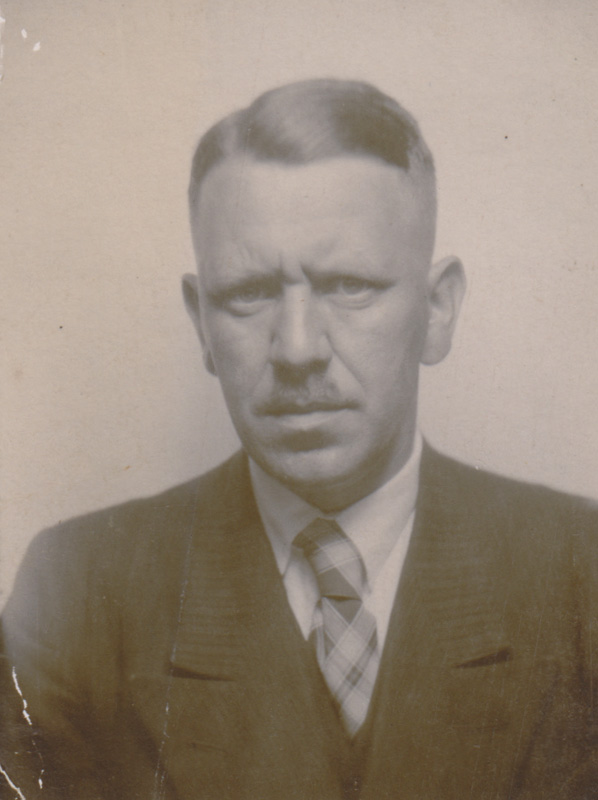Quellen
Bayerisches Hauptstaatsarchiv München, Landesentschädigungsamt 1452.
Bundesarchiv Berlin, Oberreichsanwalt R 3017 (NJ 1633/1-3).
Bretschneider, Heike: Der Widerstand gegen den Nationalsozialismus in München 1933 bis 1945, München 1968.
Admission free
Ehemaliges “Bund Oberland“-als Mitglied des Münchner Aufbruch-Kreises gegen den Krieg verfolgt und hingerichtet

Johann (Hans) Hartwimmer (1902-1944) | KZ-Gedenkstätte Dachau, F 3590
Hartwimmer arbeitete nach der mittleren Reife im elterlichen Betrieb, einer kleinen Holzschuhfabrik in der Waltherstraße. Die Empörung über den Versailler Vertrag führte ihn 1922 zum nationalistischen „Bund Oberland“, mit dem er sich auch am Hitlerputsch 1923 beteiligte. Über den Hauptmann a.D. Dr. Josef (Beppo) Römer, ehemaliger Führer des Freikorps „Oberland“, kam er später mit nationalrevolutionären Ideen in Kontakt. Seit 1931 arbeitete er im Münchner Arbeitskreis um die von Römer geleitete Zeitschrift „Aufbruch“ mit. Der Arbeitskreis erstrebte eine Lösung der „nationalen Frage“ nicht mit, sondern gegen die NSDAP: durch Zusammenwirken mit der Arbeiterbewegung, soziale Revolution und ein Bündnis mit der Sowjetunion zur Verhinderung eines Krieges. Leiter des Münchner Aufbruch-Kreises war der Kommunist Wilhelm Olschewski.
Am 8.3.1934 wurde Hartwimmer als mutmaßlicher Mitarbeiter des Nachrichtendienstes der illegalen KPD festgenommen, im folgenden Prozess zwar freigesprochen, jedoch bis 24.12.1937 im KZ Dachau festgehalten. Als Beppo Römer Ende 1939 an Olschewski und ihn herantrat, um Münchner Gruppen einer reichsweiten Widerstandsorganisation aufzubauen, knüpfte er auch Kontakte zu ehemaligen Mitgliedern des „Bund Oberland“ und gewann sie für die Mitarbeit.
Von Berlin aus konnte die Gestapo das reichsweite Netz aufdecken und verhaftete am 4.2.1942 auch Johann Hartwimmer unter dem Vorwurf der Vorbereitung zum Hochverrat. Im nachfolgenden Prozess war Hartwimmer angeklagt, die Schaffung einer „tatkräftigen kommunistischen Organisation anzustreben mit dem Ziele, durch kommunistische Verseuchung der Betriebe, durch Gründung von Betriebszellen, sowie durch Sabotage die Kriegsmacht des Großdeutschen Reiches zu Gunsten seiner Feinde zu schwächen und einen Umsturz vorzubereiten“. Am 19.4.1944 verurteilte ihn der Volksgerichtshof in München zusammen mit zwei weiteren Angeklagten zum Tode. Hartwimmer wurde am 31.10.1944 im Gefängnis Stadelheim hingerichtet.
Bayerisches Hauptstaatsarchiv München, Landesentschädigungsamt 1452.
Bundesarchiv Berlin, Oberreichsanwalt R 3017 (NJ 1633/1-3).
Bretschneider, Heike: Der Widerstand gegen den Nationalsozialismus in München 1933 bis 1945, München 1968.